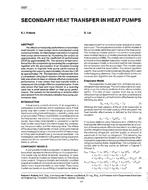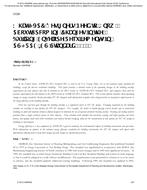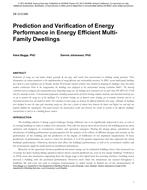An experimental study of the in-situ efficiency of six natural gas-fueled residential furnaces was undertaken. Both field tests and laboratory simulations of cyclic loads were used. It was found that generally the steady-state efficiency is higher than that achieved in an in-situ environment. Canadian Standard CAN1- P.1-85 does, however, provide a very good estimate of the seasonal in-situ efficiency and, since it is the rating method used by the manufacturers, the rated efficiency is very close to that achieved in a field environment. Measured air infiltration rates showed that a major reduction in air leakage was produced through the downsizing of the furnace vent, as is common when furnace rating and house heating load are closely matched. Operation of standard and mid-efficiency units, those that utilize vertical furnace vents and draft diverters, lead to a measurable increase in test house air infiltration rates, while operation of units utilizing blowers to control combustion air did not.
Units: Dual
Citation: Symposium, ASHRAE Transactions, 1998, Vol 104, pt. 1A, San Francisco
Product Details
- Published:
- 1998
- Number of Pages:
- 7
- File Size:
- 1 file , 130 KB
- Product Code(s):
- D-7954


